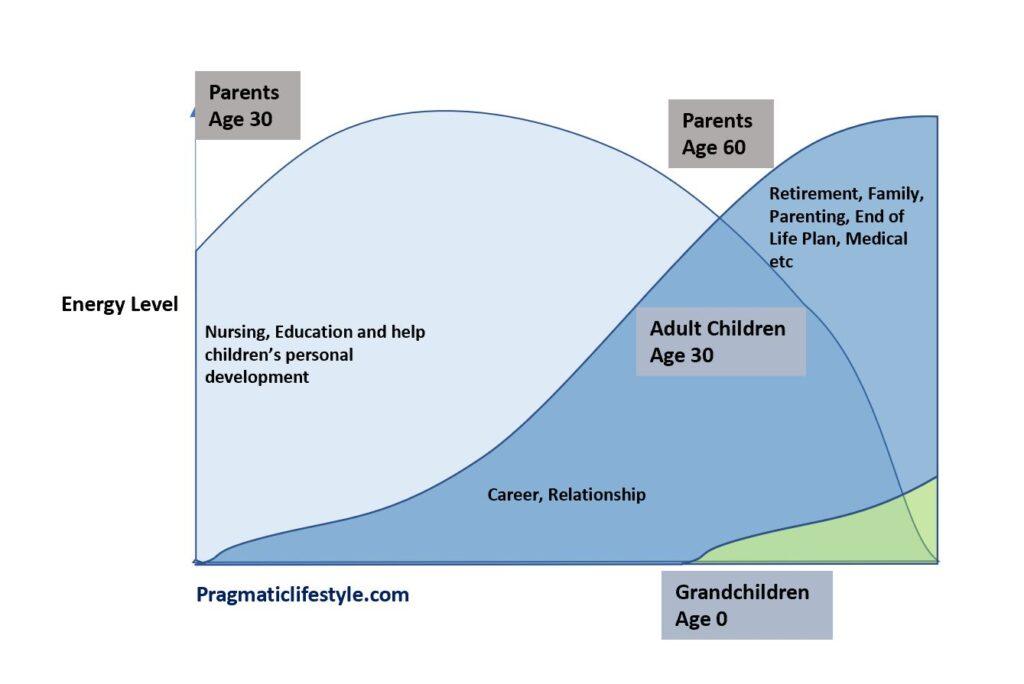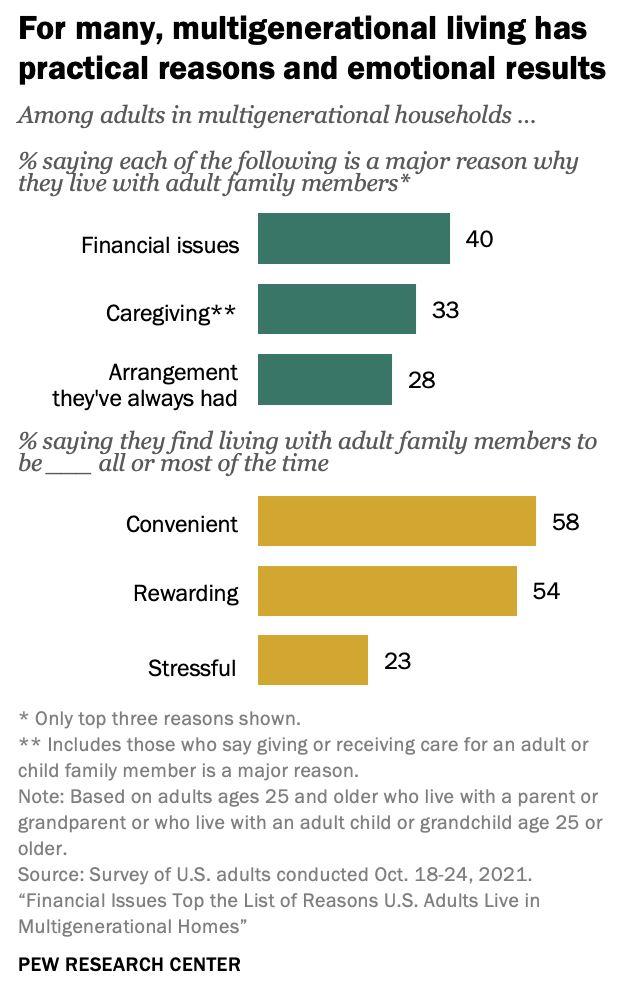Many parents hoorays when they’ve sent their children to college. Finally, we finished juggling dirty diapers, whining toddlers, and rebellious teenagers; now, they can fly alone full-time! Is parenting journey ended here? Not yet, Simba is on his journey to grow into a lion king. Moreover, your relationship with adult children has also slightly changed. It is not a purely parenting-children relationship anymore. Navigating a new relationship with adult children can be difficult. You are not their shield anymore. Sometimes, you need their help. The parents’ role may shift from authority to guidance and support. Will you be their consultant? Or are you the bankers to pay for their telephone bills? When should you offer advice, and when should you keep your mouth shut? When do you need to jump in to help or back off? Here are 12 tips for parenting adult children to help you find that balance.

Related Reading:
- 12 Jobs That Benefit Both Motherhood and Career in 2022
- 12 Things can Help Raise Kids with Diversity and Inclusion in Mind
- Top 10 High Paid Jobs for Women Career Consideration [2022]
- 8 Youngest Child Traits: Does Birth Order Matter?
- 8 Practical Tips to Help Teenagers in Career Selection
- 10 Ways to Be an Upstanders in Bullying
- 6 Tips To Help Parents Talk with Teens about Friendship
- Help! What to Do When Teen Friendship Become Toxic
Table of Contents
The Difference of Parenting Adult Children
While we focused on being a good parent for children, not many discussed how to be parents to adult children. I used to struggle quite a lot, shall I still listen to my parents? Can I raise objection? Do they have enough pension? Shall I pay their trip to visit me? What do they wish if they are unconscious?
We went back to Taipei during the Christmas holiday to visit my in-laws. Initially, I told all my friends the trip would be boring, smiling, nodding, and eating. However, this trip was the complete opposite. I was amazed by my in-laws, the communication way, their effort for the transition, and their embodying profound reciprocity. Furthermore, I started to observe my parents, friends’ parents and neighbors and discuss what they think the best relationship with their parents or adult children looks like. Every family is different, and 20-year-old adult children are in a different stage than 40-year-old adults.
Some universal principles can help parents of adult children, such as respecting their autonomy, maintaining open communication, providing emotional support and guidance, and being willing to adapt and change as the relationship evolves with a growing mindset. As a daughter and mother, I also would like to dive deeper to understand the effort, attentiveness, and willingness to transition from parenting kids to adults. I would be thrilled if you would like to join the discussion with your reflection.

Some Traits of Adult Children and Parents
We can consider children to become adults when they reach 18 since they will have full legal rights and responsibilities. We hope they are mature, economically independent, and responsible individuals capable of making their own decisions, taking care of themselves, and contributing to society.
However, there are still differences between 20-year-old children vs. 30 or 40 years. Taking my surrounding friends as examples, in our 20s, we are in college, attending graduate school, starting working, dating, exploring the world, pursuing careers, and focusing on our own success. When reaching our 30s, we start settling relationships, starting a family, looking for a stable career, and caring for financial status (e.g., saving and investing). After reaching the 40s, the focus is on raising children, mature careers, caregiving to our parents in demand, and continued education. Here I use a product life cycle to illustrate the human life develop.

Your Adult children will appreciate 12 Things
1) Have a Growth Mindset
Having a growth mindset is a belief that people can develop intelligence, skills, and abilities through effort. It would be best if you challenged yourself to learn and improve constantly. For older people, the growth mindset helps to maintain cognitive function and overall brain health instead of declining as they age. They may also face physical, social, and emotional changes that can be challenging to cope with. By embracing a growth mindset, parents can develop the resilience and adaptability needed to navigate these changes and maintain a positive outlook on life. Just because someone is getting older doesn’t mean they can’t continue to learn, grow, and pursue new interests. Parents with a growth mindset can continue to challenge themselves and explore new opportunities for personal growth and development, helping them stay engaged and fulfilled in their later years.

2) Admit they are grown-ups
Sometimes it is difficult for parents to accept that we are adults and capable of making our own decisions. When we were young, they tried hard to raise us to be independent and responsible. But now we are independent and responsible, and they have difficulty accepting it. Every vacation I stayed at home, the relationship between my mother and I will always end in the same pattern as 20 years ago. She takes care of everything, cooking, washing clothes, etc. Sometimes, it is good to share the housework, and it is okay that she is not a strong mom anymore.
3) Admit Your Feelings about their leaving
Parents can experience the empty nest syndrome when kids move out, including “loss of purpose as your schedule and calendar may suddenly empty,” “feel lack of control as you may not know their daily life,” “feeling lonely as the house is going to be quiet,” etc.
Though you are happy for your kids to grow and leave the house, the sadness still waves back now and then. The first step is acknowledging the feeling, discussing it with friends and spouses of the same status, and accepting they are adults and have their own life.
4) Do not overpromise and overestimate on yourself
My parents promised to take care of the baby and me during my first pregnancy for three months. They came from China and were well-prepared with clothes, gifts, and experience. However, it does not take long to realize that it is not the most suitable job for them (at least in the way they want). The cultural difference is a shock, and it is even hard for them to accept a natural birth instead of a C-section. They do not understand why we need to wait – false alarm – wait – false alarm for the baby. They freaked out every night when I had an overdue for two weeks!
However, after the baby comes out, it should be like the left picture in their ideal world. In reality, they hardly get any rest because the baby cries at night, and the eating time is different for everyone. In the end, they were exhausted and unable to enjoy the new identity of a grandparent. On my side, I was also tired of communicating with the midwife, nurse, husband, and my parents.

5) Set acceptable boundaries
Setting boundaries with adult children can be challenging, but it’s essential for maintaining healthy relationships and respecting each other’s autonomy, whether you are living with your parents or staying overseas. More Adult children are moving back due to the high cost.
According to census data, more than 18% of the US population live with their grandparents. The research also shows that Americans are more likely to say it negatively than positively regarding living with parents or grandparents. It caused many questions, such as when does everyone sleep? How to distribute chores, including laundry, grocery shopping, cooking, and cleaning? Who is paying the utilities? How about care and health insurance? Can friends spend the night or party on the weekend?
Here are a few tips for setting and enforcing boundaries with adult children:
- Communicate clearly: Start by explaining why boundaries are important and what you hope to achieve by setting them. Be specific about the behaviors or actions that are causing you concern and how you would like things to change.
- Be firm: Once you have established your boundaries, it’s essential to stick to them. Don’t waver or give in to pressure from your Adult children. This will only make it harder to enforce your boundaries in the future.
- Respect their autonomy: While setting boundaries is essential, respecting your Adult children’s autonomy is also important. They are now independent individuals with their own lives and decisions to make. Try to find a balance between being supportive and protective without being overbearing.
- Be open to compromise: You may need to adjust your boundaries as circumstances change or learn more about your Adult children’s needs and desires. Be open to compromise and willing to revisit your boundaries if necessary, e.g., you can call a handyman to repair your wash machine instead of call your son to fix it.
- Be patient with yourself and your children as you work together to establish healthy and respectful relationships.

6) Do not judge their lifestyle, especially their parenting style
His place is a mess! Why did he buy a fancy car instead of saving for a living place? My daughter is still dating around instead of settling down? In her age, I already have two children! Why is he still dating the girl I dislike? Can they have one more child? one seems a bit lonely.
Okay, your concern is well-intentioned, but please keep it to yourself. You’ll want to help your Adult children avoid mistakes, but it could also increase their pressure. Let it go! Tell your children that you have confidence in their ability to work through challenges. You already had the opportunity to raise your lovely child from baby to teenager, and they should be seen as independent. If you want to interfere, approach them in private and have an open discussion, and don’t be offended if they do not take the advice.
Of course, in a significant life crisis, step in without a second thought. If you have a solid relationship with your children, they will come to you for advice.

7) Plan the together time and do not show up as a surprise
When your Adult children are single, they can come home often for holidays and go on vacations together. But their schedules will be complete once they have their own families and in-laws. There might be fewer dinners and holiday visits than you wish, but try to understand from your children’s point of view. They need time to create their family traditions as well.
If you are lucky to live close by, you can offer help to pick up or take care of grandchildren. But remember to make a call before coming over!

8) Transparent about the financial retirement plan
Discuss with your children your financial plan, including health insurance, pension, and cash flow. Suppose the parents are facing financial challenges or health issues that require support from their adult children. In that case, it may be necessary to share their financial situation to seek help. If your children want to borrow money from you, either small or big, make sure they know your expectations for repayment. Here are some guidelines:
Do not play favorite: Money can be a gift to one or all children/grandchildren. However, If you want to give money as a gift to one child or lend money, inform the other kids and make the decision together. Otherwise, if they find out later, it could head off some jealousy. One of my friends has two brothers, and their parents paid off the student loan for the oldest one but not the other two. After 20 years, the two young kids still feel unfair for that!
Be firm and set up a payment schedule: Set a repayment schedule. In many cultures, talking about money with others is shameful or sensitive. Still, I have seen many cases in which family members have a bad relationship because of money.

9) Discuss with kids about sickness and funeral
What would you like to happen if incapacitated and when you die? Do you want to live with your children or go to a nursery place? How would you want to be treated when you cannot make decisions? If you are unconscious, do you want to have life support? Are you a donator? Where do you want to be buried? Even if you have a will already, having an open discussion will help them prepare.
The last thing you want is your children to decide these things for you simply because it is too heavy and helpless for them. Ignoring the elephant in the room will only create significant problems later. I still remember the moments my in-laws told us they had already selected the graveyard in a temple, and it was such a relief for us.

10) Give emotional support
Telangana Today cites that being judgmental or overreacting to their mistakes are two factors that can damage the parent-child bond.
Add that the world is changing at speeds faster than anyone can imagine. With the recent development of intelligent AI tools, it’s normal for our young adults to fear for their careers.
If your kids want to go home, let them be. Provide the space they need if they aren’t up to it yet to share their adulting woes. When they’re ready to talk, please share your thoughts with them. Be their most significant and loudest cheerleader. For all we know, this is the very thing they need to hurdle whatever they’re going through.
11) Start a hobby or a business
If you have hobbies you previously did not have time for, it is time to start them again, art, craft, or travel. Even better, plan your second honeymoon with your husband. You never have to go on the high season anymore. One of our neighbors went camping for four months in Greece, and the other started kindergarten to pick up the missing time!
12) Celebration and appreciation
Celebrate children’s achievements and successes, whether young or adults, overseas or living close by. Show appreciation for their gift or unique strengths and qualities and share the joy of seeing their children thrive and grow and are proud of the adults they have become.
Hence, Don’t Miss Out!
We always tell our kids to work hard and play hard. Same for our parents. After they did their best to parent us from baby to teenager, the hard-working period was finished. It is the playing time for parents to see their adult children venturing into the world and fulfilling their dreams.
Their role has changed; sometimes, we are in the driver’s seat instead of them. Embrace this change, be in the moment, and learn to enjoy it. You’ll be more than surprised at what this new life chapter brings to you.
Hence, while your kids are still little, don’t miss out on the opportunities you can show your love for them. Shower them with kisses every chance you have. Please give them warm hugs and snuggle in bed whenever they ask. Please bring your children to dream vacation destinations and create beautiful memories. Be grateful instead for every mess you have to clean up instead of grumbling.
Watching Netflix’s “Yes Day” can also help you find great ideas to build memories with your children. Before you know it, this chaotic moment in your life will pass, and all left are memories and bundles of photo albums.
And when your kids start leaving your home, be confident you have taught them all the skills, they need to know. But if you find it hard to cope, ask for professional help. Feeling empty and sad over this transitional loss isn’t something we should navigate alone.
About Me
Hi, there. I am Lin. Together with my husband and two kids, we live in the beautiful Netherlands in Europe. I am dedicated to self-development, creating quality time for the whole family, and fully supporting kids with their potentials and possibilities with all I have learned from engineering, MBA, and 10+ years of working experience in the energy sector.



1 Comment
Comments are closed.